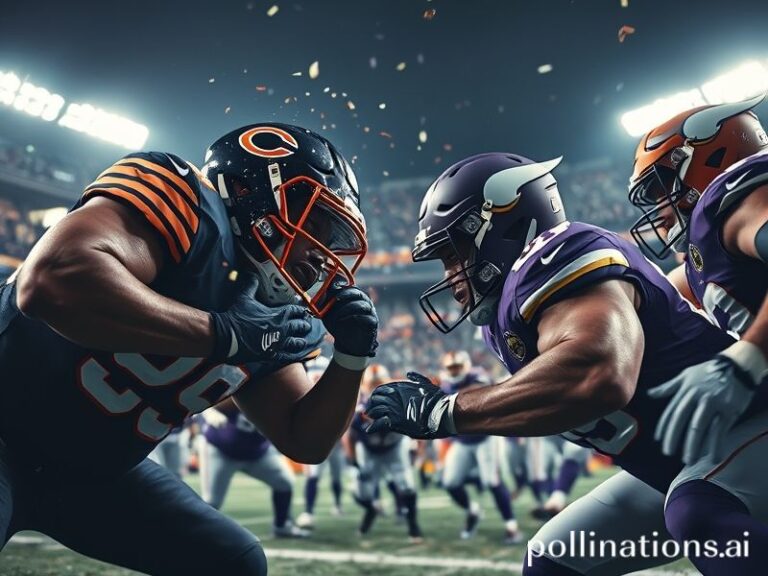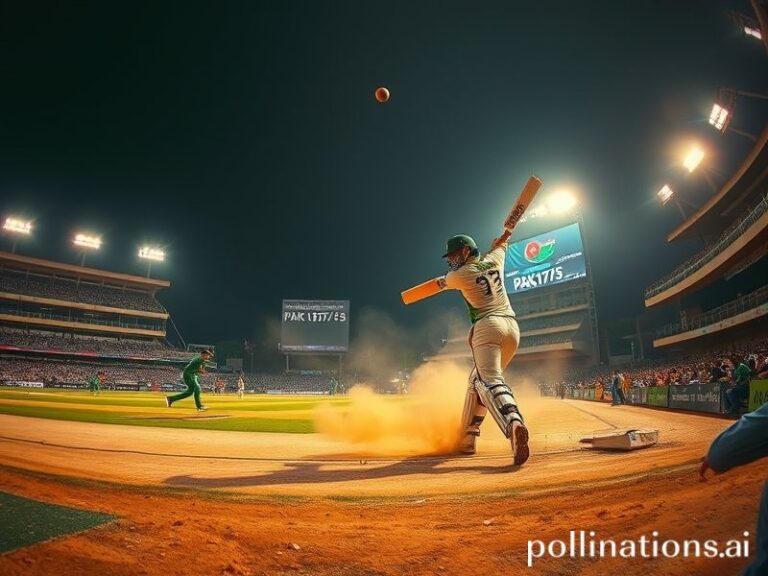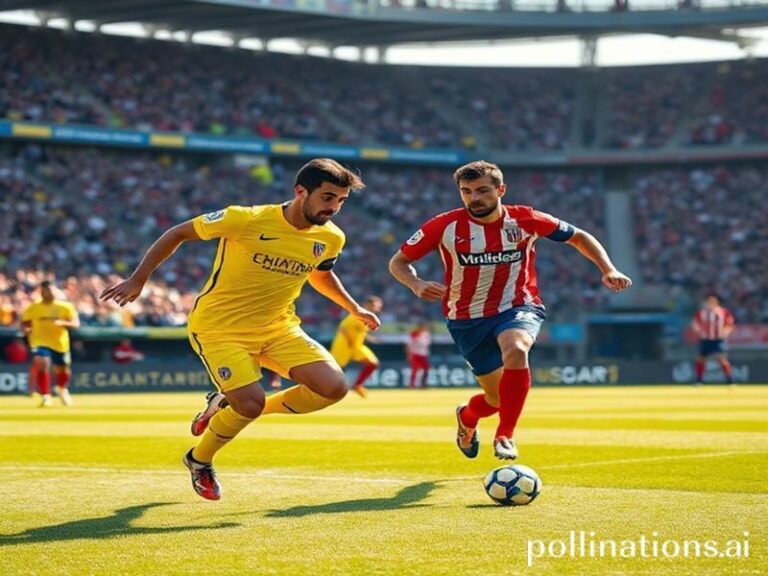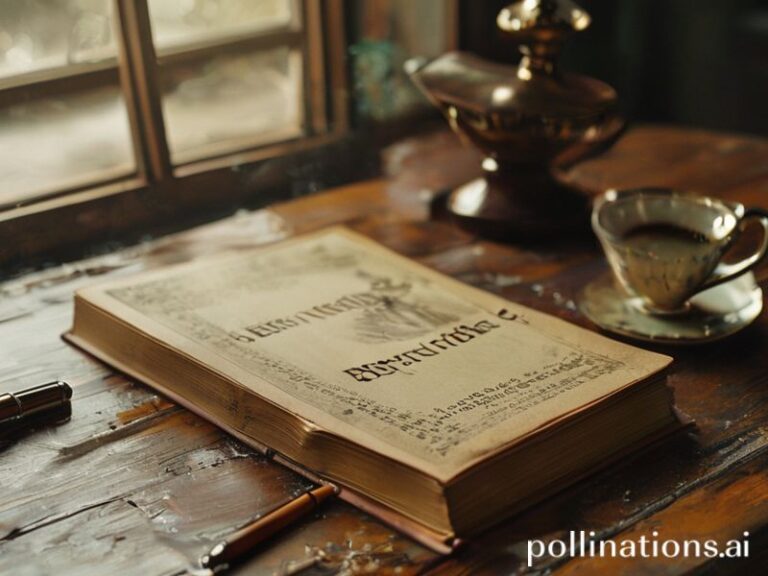Cubs vs Pirates: How a Mid-Table MLB Grudge Match Quietly Runs the World
The Cubs and the Pirates squared off again last night in Pittsburgh, a rivalry whose very name sounds like a rejected theme for a low-budget children’s cartoon. Yet from the vantage point of a café terrace in Sarajevo—where the waiter, having lived through actual siege warfare, finds American sports disputes quaintly adorable—the game carries more geopolitical freight than either franchise seems to realize.
Consider the uniforms: Cubbie blue so relentlessly optimistic it could broker cease-fires, and Pirate black so unapologetically piratical it could negotiate ransom demands. One side channels the earnest delusion of liberal internationalism; the other embodies the swaggering cynicism of every hedge fund that discovered flags of convenience. Somewhere in Geneva, a trade lawyer is taking notes.
Global supply-chain aficionados will appreciate that the baseball itself—stitched in Costa Rica from leather tanned in Vietnam, wound with wool from New Zealand, and inspected by a man in Arizona who hasn’t had a raise since the Clinton administration—travels farther than most of the players ever will. By the time it reaches the mitt of a Pittsburgh catcher earning more per pitch than a Bangladeshi garment worker sees in a fiscal year, the ball has accumulated enough air miles to qualify for its own diplomatic passport.
Meanwhile, the broadcast feed ricochets off a satellite parked in geostationary orbit above the Galápagos, where confused blue-footed boobies wonder why humans scream at pixels depicting millionaires playing pastoral keep-away. In Lagos, insomniac forex traders monitor the score between arbitrage orders, because liquidity is thin at 3 a.m. and the Cubs’ bullpen offers a more predictable collapse than the naira. In Seoul, a BTS superfan live-tweets the game to 400,000 followers who believe “Bucs” is short for “Buckingham Palace,” thereby accidentally improving Anglo-Korean relations more effectively than any embassy mixer.
The existential subplot, of course, is that neither team will win the World Series this year—or, if history is a reliable barometer, any year that contains an even number. The Cubs last raised a trophy in 2016, prompting the collective Midwest to discover emotions beyond corn subsidies; the Pirates haven’t tasted glory since 1979, a year when disco died and so, apparently, did their front office’s ambition. Their ongoing tussle resembles two Cold War satellites docking in orbit: impressive engineering, negligible consequence.
Still, the broader significance is not zero. Every foul ball that splashes into the Allegheny joins micro-plastics already circumnavigating the planet, ensuring future archaeologists will identify our era by the distinctive polymer signature of late-capitalist ennui. Each seventh-inning stretch pumps “God Bless America” across five continents, reminding listeners in 27 languages that American exceptionalism now outsources its patriotism to stadium loudspeakers. And every strikeout recorded by a Dominican pitcher against a Venezuelan batter under the managerial gaze of a Canadian coach demonstrates that globalization works best when nobody checks the labor visas.
Back in Pittsburgh, a fan wearing a Jolly Roger bandana over an N95 mask high-fives a tourist from Brisbane who thought the game was cricket but stayed for the $12 Iron City beer. They share a moment of mutual incomprehension that somehow transcends language and public-health guidelines. It is, as the French would say, a beautiful absurdity—though the French also said that about the Maginot Line, so grain of salt.
The final score was 4-2, Cubs, if you’re keeping track for your fantasy league or your dissertation on late-imperial nostalgia. But the real winners are whoever sells the broadcast rights, the cotton for the jerseys, and the existential dread that keeps us tuning in. The rest of us just get another reminder that in a world tilting toward autarky and algorithmic loneliness, we still gather, virtually or otherwise, to watch grown men chase a sphere around a diamond like it means something. Which, for two and a half hours on a Wednesday night, it sort of does.







